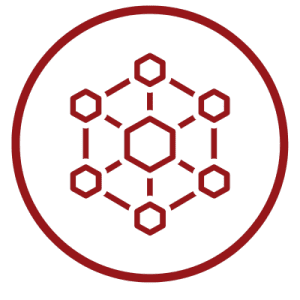BIPOC | Research Center
The mission of the IPR CDEI is to conduct, support, and promote research and insights relating to diversity, equity, and inclusion in the workplace focused on six core areas: BIPOC, LGBTQ+, women, intersectionality, disabilities, and mental health.
Research Topics:
EEO-1 RACE AND ETHNICITY CATEGORIES: |
Latest Research
Confronting Whiteness in Public Relations Campaigns and Research with Women
Jennifer Vardeman-Winter, Ph.D.
This study applies the theory of Whiteness (defined as “a location of structural advantage, of race privilege … [and] refers to a set of cultural practices that are usually unmarked and unnamed”) to better understand how public relations professionals can identify the relationship between the public relations practice and race.

Candice LaShara Edrington, Ph.D., and Nicole Lee, Ph.D.
This study examines the message strategies used on Twitter by the Black Lives Matter social movement as a means to share information, build community, and promote action as well as what type of influence these strategies had on audience engagement in terms of replies and retweets.
The Black-White Divide on Diversity Efforts in the Media and Advertising Industry
The Myers Report
Based on a study of 700 media and advertising professionals conducted just prior to COVID-19 and Black Lives Matter activism, this report provides insights on attitudes toward diversity, online education, compensation, and on-the-job training.
Black Americans Face Higher COVID-19 Risks, Are More Hesitant to Trust Medical Scientists, Get Vaccinated
Cary Funk, Ph.D., and John Gramlich
A recent Pew Research Center Survey found that Black Americans account for a disproportionate share of COVID-19 deaths, and stand out from other racial and ethnic groups in their attitudes toward specific healthcare topics.

Seoyeon Hong, Ph.D., and Maria E. Len-Rios, Ph.D.
It was once postulated that there are fewer people of color in the PR industry because publics would respond less favorably to a racially diverse spokesperson. The authors tested this rationale by examining the effect of a PR spokesperson’s race on perceived credibility and perceptions of a PR crisis’ severity.
Significance of Race in the U.S. Undergraduate Public Relations Educational Landscape: Reflections of Former PR Students
Damion Waymer, Ph.D., and Kenon A. Brown, Ph.D.
In this study, the authors focused on the undergraduate environment as a pipeline to the profession and sought to determine whether issues of race played a role in students’ ability to succeed in PR coursework and gain professional experience.
Racial and Gender-Based Differences in the Collegiate Development of Public Relations Majors: Implications for Underrepresented Recruitment and Retention
Kenon Brown, Ph.D., Damion Waymer, Ph.D., and Ziyuan Zhou, Ph.D.
This study seeks to determine if PR students believe that race and gender affected their educational experiences and social development during their collegiate careers.
Exploring Diversity and Client Work in Public Relations Education
Katie Place, Ph.D., and Antoaneta Vanc, Ph.D.
In this study, researchers explored public relations students’ notions of diversity and client work within the public relations curriculum. Dr. Katie R. Place and Dr. Antoaneta M. Vanc wanted to know how students define “diversity” in the context of client work, and how client work prepares students to address diversity as future public relations professionals.
Five Ways Higher Education Can Be Seen as Hostile to Women of Color
Amy Bonomi, Ph.D., Callie Rennison, Ph.D.
Researchers examined the perspectives of 23 female leaders on issues of leadership and the challenges of confronting structural racism, bias and discrimination at colleges and universities. When women of color occupy leadership positions in higher education, they often face “glass cliff” scenarios; they are elevated to leadership roles when the organization is in crisis and their risk of failure is high.

Anthony Leiserowitz, Ph.D., Karen Akerlof, Ph.D.
This study examines American public support for climate change and energy policies among different racial and ethnic groups. Dr. Leiserowitz and Dr. Akerlof examined American public support for climate change and energy policies among different racial and ethnic groups.
The White Leader Prototype: A Critical Analysis of Race in Public Relations
Nneka Logan, Ph.D.
This report analyzes race in the public relations industry and introduces a theoretical concept of the White leader prototype. A descriptive case study was conducted to explore the role that race plays in leadership ascension in public relations.
African-American Students’ Perceptions of Public Relations Education and Practice: Implications on Minority Recruitment and Retention
Kenon A. Brown, Ph.D., Candace White, Ph.D., Damion Waymer, Ph.D.
Researchers conducted in-depth interviews with African American public relations students to understand how they perceive the public relations industry, education, and how they feel their race may impact their career success.

Angela Harris, J.D., Zeus Leonardo, Ph.D.
Researchers review the genealogy of “intersectionality”, examine intersectionality’s utility for social analysis, and review how education researchers have explained race and gender subordination in education.
Racial and Gender-Based Differences in the Collegiate Development of Public Relations Majors: Implications for Recruitment and Retention
Kenon A. Brown, Ph.D., Damion Waymer, Ph.D., Ziyuan Zhou
Researchers conducted an online survey of 294 public relations students to understand how current public relations majors experience racial and gender differences in their collegiate experience.
Demarginalizing the Intersection of Race and Sex
Kimberle Crenshaw, L.L.M.
In this seminal work, Kimberle Crenshaw introduces the concept of “intersectionality,” the intersection and interconnectedness of identities, such as race, gender, ethnicity, sexuality, etc.